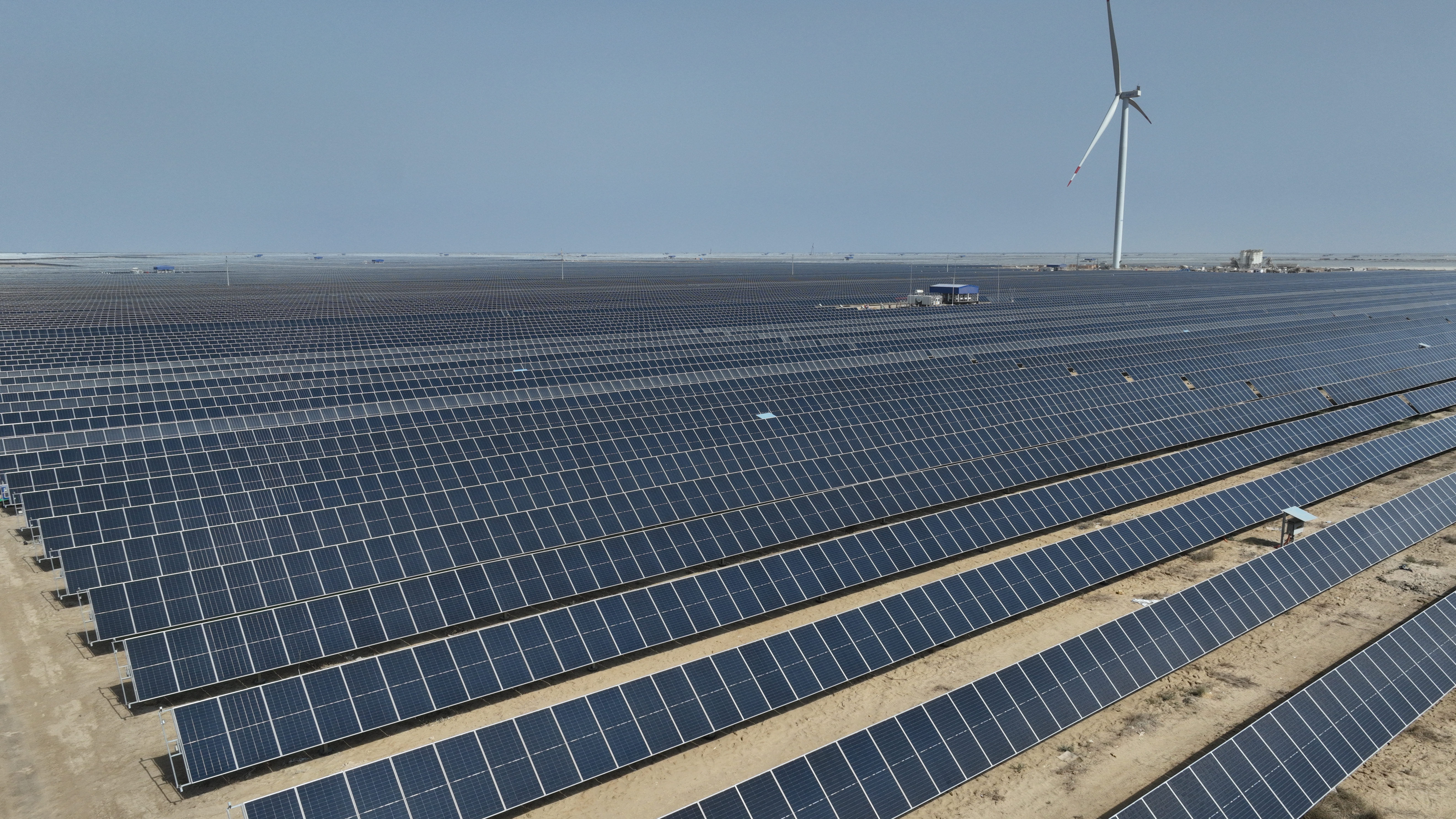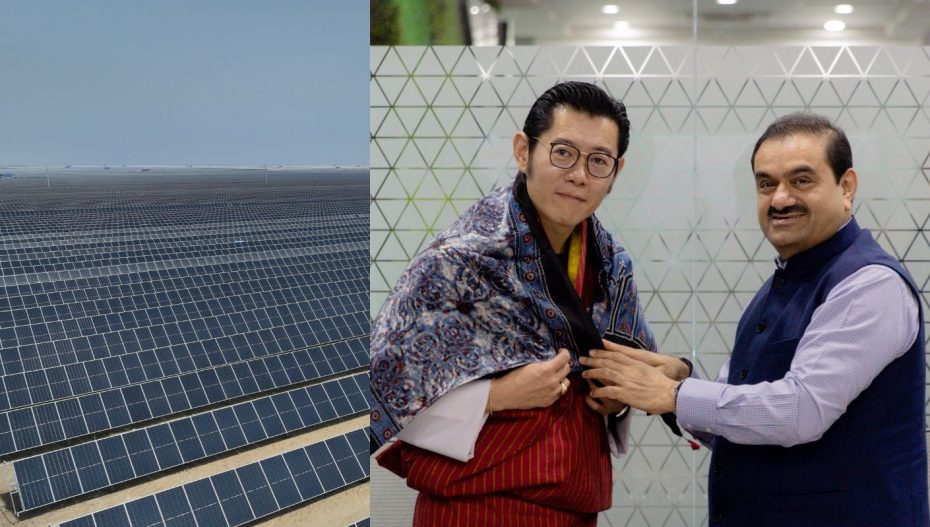As part of a two-day visit to Gujarat, a high-level delegation from Bhutan, led by the country’s King Jigme Khesar Namgyel Wangchuck, visited the Adani Group’s major infrastructure facilities at Mundra and Khavda on Tuesday.
Taking to X (formally Twitter), Adani Group’s Chairman Gautam Adani said, “Immensely grateful to His Majesty King Jigme Khesar Namgyel Wangchuck of Bhutan and Hon. @PMBhutan Dasho Tshering Tobgay for visiting Adani’s 30 GW Renewable Energy site at Khavda and Mundra Port. Deeply inspired by Bhutan’s vibrant spirit and steadfast commitment to eco-friendly initiatives. We are excited about doing our part to foster collaboration with the Land of the Thunder Dragon for a sustainable and greener future.”
According to reports, the main goal of their visit was to explore possible avenues for broad collaboration with the Adani Group in a range of industries.
In Mundra, the Adani Group runs the biggest commercial port in India, and at Khavda, it is creating the largest renewable energy park globally. The group’s flagship Mundra Port & SEZ has proved its ability to conceptualise and carry out large-scale projects, turning a barren wasteland at Mundra into the nation’s premier port and a significant industrial base.
The business is now building the largest energy park in the world at Khavda, Gujarat, turning vacant land into a centre of clean, inexpensive energy as part of its commitment to the green energy transition and reaching net-zero emissions.

Bhutan intends to work with the group to use its experience in creating large-scale infrastructure projects. Key areas of mutual interest that came up during the talks were green hydrogen, hydropower, transmission lines, urban development like Gelephu Mindfulness City, cement, and renewable energy.
For the purpose of developing the 570 MW Wangchhu Hydropower Project, the Adani Group and Druk Green Power Company (DGPC) have previously signed a Memorandum of Understanding (MoU).
The King was accompanied by DGPC representatives on the visit to Adani’s sites.

This is a critical undertaking since hydropower is essential to Bhutan’s economy and contributes considerably to both its GDP and revenue from exports. Bhutan contributes to India’s energy demands by exporting a sizable amount of the power it generates.
Bhutan is expected to have a substantial hydropower potential of 30,000 MW, of which about 24,000 MW are economically feasible. India has been a major contributor to Bhutan’s economic growth since the 1960s as the country’s hydropower sector has developed.
The Adani Group has been actively assisting neighbouring countries in their endeavours towards sustainable development, owing to its strong infrastructural skills. One of the most recent partnerships is a 20-year agreement for wind power plants with the Sri Lankan government; this is the biggest foreign direct investment and electricity project in the history of the island nation.
Adani Group has strengthened its commitment to improving regional energy security and sustainability when it started exporting power to Bangladesh from its 1,600 MW Godda Power Plant in Jharkhand, India’s first transnational power project.
According to reports, the current talks between the Adani Group and the Bhutanese delegation demonstrate a common commitment to promoting regional economic growth and sustainable development goals through strategic collaborations.
Also Read: Budget Boost To MSME Sector, Good News For Tax Payers












